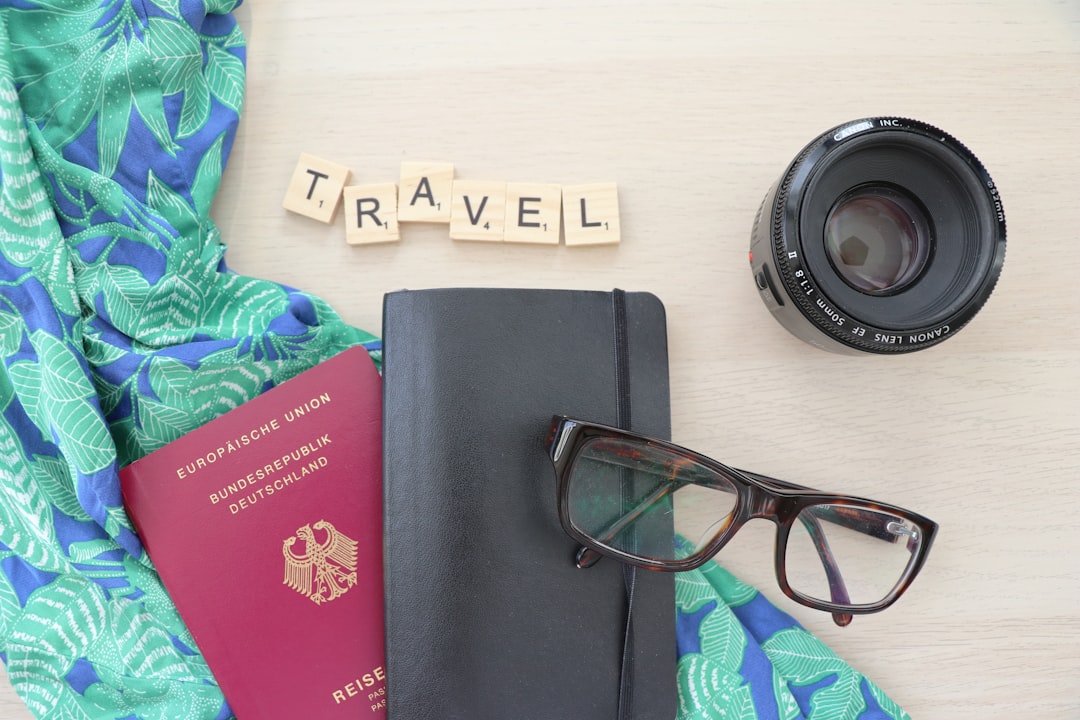Smart Finance and Tax Strategies for Global Nomads

Introduction
The modern digital nomad is no longer a niche traveler who works from cafés once a week. Many people now spend months, years, or even a lifetime moving between countries while earning a salary, running a freelance business, or managing investments. This lifestyle offers freedom, but it also creates a complex financial landscape. Banks, payment platforms, tax authorities, and legal systems are built around the assumption of a fixed residence. When that assumption disappears, a nomad must build a strategy that protects income, minimizes tax exposure, and maintains compliance wherever the next passport stamp lands.
This guide lays out practical, actionable steps for building a resilient financial foundation as a global nomad. It covers choosing the right banking partners, mastering international payment methods, managing currency risk, establishing tax residency, structuring legal entities, and protecting assets with insurance. Each section includes concrete tips, recommended tools, and a checklist you can adapt to your own situation.
Banking for a Borderless Lifestyle
Why Traditional Banking Falls Short
Most domestic banks require a permanent address, a social security number or national ID, and a history of local credit activity. When you move abroad, the bank may freeze the account, demand proof of residency, or close the account altogether. Even if the account stays open, accessing funds can become costly due to foreign‑exchange fees, ATM surcharges, and limited online services.
Choosing an International‑Friendly Bank
Look for banks that explicitly market to expatriates, freelancers, or digital nomads. Key criteria include:
- No minimum residency requirement – the bank should allow you to open an account with a foreign address or a mail‑forwarding service.
- Multi‑currency support – the ability to hold and transfer money in major currencies (USD, EUR, GBP, AUD, etc.) without conversion fees.
- Low ATM fees worldwide – some banks reimburse ATM surcharges or partner with global ATM networks.
- Robust online platform – mobile app, real‑time transaction alerts, and easy integration with accounting software.
- Transparent fee structure – clear information on monthly fees, inbound/outbound transfers, and currency conversion costs.
Popular Options
| Bank | Key Features | Ideal For |
|---|---|---|
| Wise (formerly TransferWise) Borderless Account | Hold 50+ currencies, local bank details in US, UK, EU, Australia, low conversion fees | Freelancers who need to receive payments in multiple currencies |
| Revolut Premium/Metal | Free international ATM withdrawals up to a limit, cryptocurrency support, budgeting tools | Travelers who want a sleek app and occasional crypto exposure |
| N26 (EU only) | No foreign transaction fees, instant notifications, integrated budgeting | EU‑based nomads who need a German IBAN |
| HSBC Expat | Global presence, multi‑currency accounts, wealth management services | High‑net‑worth individuals seeking a full‑service bank |
| Citibank International Personal Banking | Access to over 70 countries, multi‑currency accounts, premium travel benefits | Frequent flyers who value airport lounge access |
Setting Up Your Account Remotely
- Gather required documents – passport, proof of address (utility bill, lease, or a mail‑forwarding service receipt), and source‑of‑funds documentation (employment contract, invoices, or investment statements).
- Use a reputable mail‑forwarding service – many banks accept a virtual address provided by services such as Earth Class Mail, iPostal1, or MyUS. Ensure the service offers a physical street address and can receive official mail.
- Complete the online application – upload scans of your documents, answer compliance questions, and set up security features (two‑factor authentication, biometric login).
- Verify the account – you may need to confirm a small deposit or answer a verification call. Some banks require a video call for identity verification.
- Activate international features – order a debit card, enable ATM withdrawals abroad, and set up currency exchange alerts.
Maintaining a Healthy Banking Profile
- Keep a minimum balance if the account charges a fee for low balances.
- Avoid excessive cash withdrawals that may trigger fraud alerts.
- Use the bank’s app for real‑time monitoring to spot unauthorized transactions quickly.
- Update your address whenever you change your primary mailing location, even if it is a virtual address.
- Consider a secondary account for backup in case your primary bank experiences service interruptions.
Mastering International Payment Methods
The Landscape of Cross‑Border Payments
Digital nomads receive money from clients, marketplaces, and investment platforms across the globe. The optimal payment method balances speed, cost, and ease of use. The three main categories are:
- Bank transfers (SWIFT, SEPA, local ACH) – reliable but can be slow and expensive for certain corridors.
- Online payment platforms – PayPal, Stripe, Payoneer, and Wise provide faster settlement and lower fees for many routes.
- Cryptocurrency – offers near‑instant settlement and can bypass traditional banking restrictions, but introduces volatility and regulatory considerations.
Selecting the Right Platform for Your Income Streams
| Income Source | Recommended Platform(s) | Reason |
|---|---|---|
| Freelance contracts (US, EU, AU) | Wise, Payoneer, Stripe | Low fees, multi‑currency payouts, easy invoicing |
| Marketplace sales (e‑commerce) | PayPal, Stripe, Shopify Payments | Integrated checkout, buyer protection |
| Remote employment (salary) | Direct bank transfer, Wise Borderless | Employer can send to local bank details, minimal conversion fees |
| Investment dividends (US, EU) | Direct deposit to multi‑currency account, TransferWise | Avoid double conversion, maintain tax documents |
| Crypto‑based gigs | Stablecoin payments (USDC, USDT) via a regulated exchange | Immediate settlement, low fees, hedged against volatility |
Reducing Fees and Currency Conversion Costs
- Choose a payment platform that offers local bank details in the client’s country. For example, a US client can pay a Wise account using a US routing number and account number, avoiding SWIFT fees.
- Batch payments – if you receive multiple invoices from the same client, request a single larger transfer to reduce per‑transaction fees.
- Set a currency conversion threshold – many platforms charge a higher spread after a certain amount. Convert larger sums less frequently to lock in better rates.
- Leverage “real‑time” market rates – platforms like Wise use the mid‑market rate with a transparent markup, which is typically cheaper than bank rates.
- Negotiate fees – high‑volume freelancers can sometimes secure discounted rates from payment processors.
Managing Payment Disputes and Chargebacks
- Keep detailed contracts that specify payment terms, deliverables, and jurisdiction.
- Use invoicing tools that embed a unique reference number, making it easier to track payments.
- For platforms that support it, enable escrow for larger projects to protect both parties.
- Maintain documentation (emails, screenshots, work logs) in case you need to dispute a chargeback.
- If a dispute escalates, consider consulting a legal professional familiar with international commerce.
Crypto as a Payment Option
Cryptocurrency can be a useful bridge when traditional routes are blocked or prohibitively expensive. However, it requires careful handling:
- Use stablecoins (USDC, USDT) to avoid price swings.
- Select regulated exchanges for converting crypto to fiat, such as Coinbase, Kraken, or Gemini.
- Track the tax implications – many jurisdictions treat crypto as property, meaning each conversion may trigger a taxable event.
- Secure your wallets with hardware devices and multi‑signature setups to prevent theft.
Currency Management and Exchange Strategies
Understanding Currency Exposure
When you earn in one currency but spend in another, you are exposed to exchange rate risk. Over time, fluctuations can erode your purchasing power or, conversely, boost it. Managing this exposure is essential for budgeting and long‑term wealth preservation.
Core Strategies
- Hold multiple currencies – keep a portion of your cash in the currencies you regularly spend (e.g., EUR for Europe, AUD for Australia). Multi‑currency accounts let you switch funds instantly at low cost.
- Use forward contracts – some fintech platforms and foreign‑exchange brokers allow you to lock in a rate for a future date, protecting against adverse moves. This is useful for large, predictable expenses such as annual insurance premiums or visa fees.
- Employ currency baskets – allocate your savings across a basket of stable currencies (USD, EUR, CHF, SGD) to diversify risk.
- Automate rebalancing – set up triggers in your banking app to move funds when the exchange rate hits a predefined level.
Practical Tools
- Wise – real‑time conversion at the mid‑market rate, automatic alerts.
- CurrencyFair – peer‑to‑peer marketplace for better rates on larger transfers.
- Revolut – enables you to set rate alerts and execute instant exchanges.
- OFX, XE, or OANDA – provide forward contract services for higher‑value transactions.
Tips for Everyday Spending
- Pay in the local currency whenever possible. Credit cards that automatically convert at the point of sale often add a markup.
- Use a no‑foreign‑transaction‑fee credit card for larger purchases to avoid additional costs.
- Withdraw cash in larger denominations to reduce the number of ATM fees.
- Keep a small cash reserve in the local currency for places that do not accept cards.
Hedging Against Inflation
In some countries, inflation can erode the value of local cash holdings quickly. To protect yourself:
- Convert excess local cash to a stable foreign currency or a low‑inflation asset (e.g., US Treasury bills).
- Invest in global index funds that are denominated in strong currencies.
- Consider precious metals (gold, silver) as a store of value, especially when traveling in regions with volatile fiat currencies.
Determining Tax Residency
The Concept of Tax Residency
Tax residency determines which country has the right to tax your worldwide income. Each jurisdiction uses its own criteria, typically based on days‑present, domicile, or a combination of factors. For digital nomads, the “183‑day rule” is the most common benchmark: spend more than 183 days in a country, and you become a tax resident there.
Common Residency Tests
- Physical Presence Test – count the number of days you spend in a country during a tax year.
- Domicile Test – your permanent home, usually where you intend to return, can create tax obligations even if you are not physically present.
- Center of Vital Interests – if your family, business, and social ties are concentrated in a country, tax authorities may deem you a resident.
Strategies to Manage Residency
- Plan your travel calendar – keep a detailed log of entry and exit dates to ensure you do not unintentionally cross the 183‑day threshold in a high‑tax jurisdiction.
- Use a “home base” country – select a nation with favorable tax treaties, low personal income tax, or a territorial tax system (e.g., Portugal’s Non‑Habitual Resident regime, Georgia, or the UAE).
- Maintain strong ties to your chosen tax home – keep a residential lease, a local bank account, and a driver’s license or ID card to support your claim.
- Consider “tax residency by election” – some countries allow you to declare yourself a resident if you meet certain criteria, often accompanied by a minimum stay or investment.
Tax Treaties and Double Taxation
Many countries have double‑taxation agreements (DTAs) that prevent you from being taxed on the same income twice. When you earn income in one jurisdiction and are resident in another, the DTA typically provides:
- Residence exemption – the source country taxes the income, but the resident country grants a credit for the tax paid.
- Tax sparing – some developing nations offer credits for taxes that would have been paid if they had a full tax system.
Before relying on a treaty, verify:
- The effective date of the treaty (some are outdated).
- Whether the treaty covers the type of income you receive (employment, royalties, capital gains).
- The procedural requirements for claiming treaty benefits (forms, certificates of residence).
Reporting Obligations
- Foreign Bank Account Reporting (FBAR) – U.S. citizens and residents must file FinCEN Form 114 if the aggregate value of foreign accounts exceeds $10,000 at any point in the year.
- Foreign Account Tax Compliance Act (FATCA) – many banks now report U.S. account holders to the IRS automatically.
- Worldwide Income Reporting – most countries tax residents on global income, requiring you to file an annual return even if you earned nothing locally.
Working with Professionals
Given the complexity, it is advisable to retain a tax advisor who specializes in cross‑border taxation. Look for:
- Experience with digital nomads and remote workers.
- Knowledge of the tax laws in your primary residence and the countries you frequently visit.
- Ability to file in multiple jurisdictions and claim treaty benefits.
Legal Structures for Income and Asset Protection
When to Incorporate
Forming a legal entity can separate personal and business finances, reduce tax liability, and provide a layer of liability protection. The decision depends on:
- Volume and nature of income – regular freelance contracts, SaaS subscriptions, or e‑commerce sales may benefit from a corporate structure.
- Risk exposure – high‑value contracts or services that could result in legal claims.
- Tax optimization – some jurisdictions offer lower corporate tax rates or territorial systems where foreign‑sourced income is exempt.
Popular Jurisdictions
| Jurisdiction | Benefits | Drawbacks |
|---|---|---|
| United Kingdom (Ltd) | Strong legal framework, access to EU markets post‑Brexit, reputable banking | Higher corporate tax rate, Brexit uncertainty |
| United Arab Emirates (Free Zone) | 0% corporate tax, 100% foreign ownership, easy setup | Requires a local office or virtual presence, annual fees |
| Estonia (e‑Residency) | Digital‑first administration, low corporate tax on retained earnings, EU member | Must appoint a local contact, limited physical presence |
| Singapore | Low corporate tax, extensive treaty network, robust financial services | Higher cost of incorporation, strict substance requirements |
| Delaware (USA) | Well‑known legal system, flexibility, easy to raise capital | Federal tax obligations for U.S. citizens, potential state taxes |
Steps to Incorporate
- Choose a jurisdiction based on your business model, target market, and tax goals.
- Select a company name and verify its availability.
- Prepare incorporation documents – articles of association, shareholder agreements, and director details.
- Engage a registered agent – many jurisdictions require a local presence for service of process.
- Open a corporate bank account – use the same criteria described in the banking section, but now under the company’s name.
- Obtain necessary licenses – depending on the nature of your services, you may need professional or industry‑specific permits.
- Maintain compliance – file annual returns, keep accounting records, and adhere to local reporting requirements.
Managing Substance Requirements
Increasingly, tax authorities demand “substance” – a genuine economic presence – for companies claiming favorable tax treatment. To meet these rules:
- Rent a virtual office with a physical address, telephone line, and mail handling.
- Hire a local director or manager if required.
- Document board meetings with minutes, agendas, and attendance logs.
- Keep local expenses (rent, utilities, payroll) that demonstrate operational activity.
Protecting Personal Assets
- Use a separate legal entity for high‑risk activities (e.g., consulting vs. e‑commerce).
- Consider a trust – for high‑net‑worth individuals, a revocable or irrevocable trust can shield assets from creditors and simplify succession.
- Purchase appropriate insurance (see the next section) to cover liabilities that could otherwise jeopardize personal wealth.
Insurance Essentials for the Constantly Mobile
Why Traditional Policies Fail
Standard home, health, or auto policies are usually tied to a fixed address. When you move across borders, coverage may lapse, exclusions may apply, or premiums may become unaffordable. A tailored insurance plan is essential to avoid costly gaps.
Core Coverage Areas
- Health Insurance – look for global or expatriate plans that cover hospitalization, outpatient care, and medical evacuation. Some providers offer tiered plans based on geographic regions (e.g., Asia‑Pacific, Europe).
- Travel Insurance – short‑term policies for trips under 90 days, covering trip cancellation, lost luggage, and emergency medical.
- Personal Liability – protects against claims for bodily injury or property damage caused by you, crucial for freelancers who visit client sites.
- Professional Indemnity – covers errors and omissions in the services you provide, especially important for consultants, designers, and developers.
- Device Protection – coverage for laptops, smartphones, and cameras against theft, loss, or accidental damage.
- Life Insurance – consider a universal or term policy that can be transferred internationally.
Selecting a Provider
Key attributes to evaluate:
- Global network of hospitals and clinics – ensures you can receive care without excessive out‑of‑pocket costs.
- No‑restriction on claim locations – the insurer should not limit coverage to a single country.
- Clear exclusions – understand activities (e.g., extreme sports) that are not covered and purchase riders if needed.
- Repatriation clause – covers the cost of returning you to your home country for treatment or in the event of death.
- Renewal flexibility – the ability to extend coverage without a medical underwriting process each year.
Recommended Companies
- Cigna Global – flexible plans, wide provider network, customizable coverage levels.
- Allianz Worldwide Care – strong reputation, comprehensive medical evacuation.
- SafetyWing – affordable travel and health plans for digital nomads, simple online enrollment.
- World Nomads – popular for adventure travel, offers optional gear protection.
Managing Premium Payments
- Use a multi‑currency credit card to pay premiums in the insurer’s preferred currency, avoiding conversion fees.
- Set up automatic renewal reminders in your calendar to prevent lapses.
- Keep digital copies of policy documents in a cloud storage service with two‑factor authentication.
Filing a Claim While Abroad
- Contact the insurer’s 24‑hour hotline – most providers have an international emergency number.
- Gather documentation – receipts, medical reports, police reports (for theft), and photographs.
- Submit the claim online – many insurers offer a portal where you can upload PDFs and track status.
- Follow up – keep a record of all communications and request a reference number for each interaction.
Tools, Apps, and Resources for the Modern Nomad
| Category | Tool | Primary Use |
|---|---|---|
| Banking & Payments | Wise, Revolut, N26 | Multi‑currency accounts, low‑cost transfers |
| Accounting | Xero, QuickBooks Online, Wave | Invoicing, expense tracking, tax reporting |
| Currency Alerts | XE, OANDA, CurrencyFair | Real‑time rate notifications |
| Travel Planning | TripIt, Google Trips | Consolidate itineraries, keep travel documents |
| Document Management | Dropbox, Google Drive, OneDrive | Secure storage of contracts, insurance policies |
| Legal & Incorporation | Stripe Atlas, 1‑Form, Incorporate.com | Forming companies in multiple jurisdictions |
| Tax Compliance | Taxify, Expat Tax Professionals, GlobalTax | Filing multi‑country returns, FBAR assistance |
| Insurance | SafetyWing, Cigna Global, World Nomads | Health, travel, and liability coverage |
| Community | Nomad List, Remote Year Forum, Facebook Groups | Peer advice, destination tips, networking |
Automation Tips
- Link your accounting software to your bank so that every transaction is automatically categorized.
- Set up recurring transfers to move a portion of income into a savings or investment account each month.
- Use Zapier or Make to create workflows, such as sending a Slack notification when a new invoice is paid.
Practical Checklist for Setting Up Your Nomadic Finance Engine
- Choose a primary banking partner that supports multi‑currency accounts and has no residency requirement.
- Open a secondary backup account in a different jurisdiction for redundancy.
- Set up a Wise Borderless Account (or equivalent) to receive payments in local details from the US, UK, EU, and AU.
- Select an online payment platform aligned with your client base (Payoneer for US clients, Stripe for e‑commerce).
- Create a currency management plan – decide which currencies you will hold and set rate alerts for conversions.
- Map out your travel calendar for the year, ensuring you stay below residency thresholds in high‑tax countries.
- Identify a “home base” jurisdiction with favorable tax treatment and open a legal entity if needed.
- Register the company, obtain a corporate bank account, and keep proper accounting records.
- Purchase global health insurance and add personal liability, professional indemnity, and device protection as required.
- Enroll in an expense‑tracking app and connect it to your accounts for real‑time budgeting.
- Store all important documents (passports, visas, insurance policies, incorporation papers) in an encrypted cloud folder.
- Schedule an annual meeting with a cross‑border tax advisor to review residency status, treaty benefits, and filing obligations.
- Review and update your emergency contacts and medical information with your insurer before each major move.
Closing Thoughts
Living as a global nomad is a rewarding adventure, but financial freedom does not happen by accident. By deliberately selecting banks that understand mobility, mastering low‑cost international payment channels, managing currency exposure, and staying ahead of tax residency rules, you can protect your earnings and keep your paperwork under control. Adding a well‑structured legal entity and comprehensive insurance further shields you from unexpected setbacks.
Remember that the landscape is constantly evolving – new fintech solutions appear, tax laws change, and visa regimes shift. Treat your financial setup as a living system: review it regularly, adapt to new tools, and seek professional guidance when complexity rises. With a solid framework in place, you can focus on what truly matters – exploring new cultures, building meaningful work, and enjoying the freedom that comes from truly untethered living.
Random Posts

Top Remote Job Boards Every Freelancer Should Bookmark
Discover the essential remote job boards that let freelancers skip endless scrolling, find vetted projects, filter by pay and length, and turn the job hunt into a quick, predictable routine.
1 week ago

Ultimate Guide to the Best Digital Nomad Destinations and Visa Options
Discover the top digital nomad hotspots for 2025, compare cost, internet, safety and community, and learn which visas let you stay legally for months or a year.
2 weeks ago

Boosting Productivity in Global Coworking Hubs with Seamless Connectivity
Seamless, secure internet turns coworking hubs into global productivity powerhouses, linking startups, freelancers and multinationals so work flows smoothly across teams and time zones.
1 month ago

Savvy Nomad Handbook to Global Cities and Low Cost Flights
Discover how to choose budget-friendly cities for remote work and unlock low-cost flight hacks. This handbook gives practical data, tips and routes to balance productivity, adventure and savings.
1 week ago

Where to Live and Work Abroad Essential Guides for Digital Nomads and Their Visas
A practical roadmap helps digital nomads pick the best country, compare visa options, weigh cost, internet and community, and get step by step tips to settle and thrive abroad.
4 weeks ago
Latest Posts

Essential Software Every Remote Professional Should Use
Master remote work with essential tools: instant messaging like Slack, high definition video calls such as Zoom, and asynchronous voice apps. Streamline communication, stay connected and boost productivity.
1 day ago

Mastering Remote Work Productivity for Digital Nomads and Freelancers
Learn proven habits, tools, and tactics that help digital nomads and freelancers stay focused, deliver quality work, and maintain a sustainable lifestyle while traveling the world.
1 day ago

Tech‑Friendly European Towns Perfect for Remote Living
Discover Europe’s best small towns where fast internet, affordable living and vibrant tech communities let you work remotely while soaking up historic charm, lakeside views or mountain air.
1 day ago